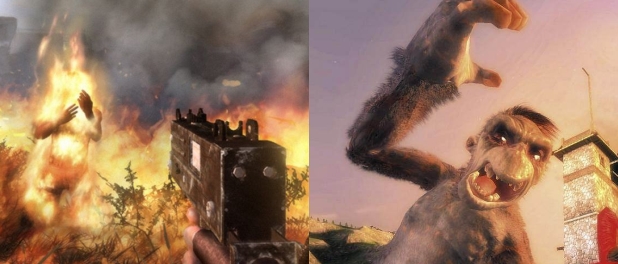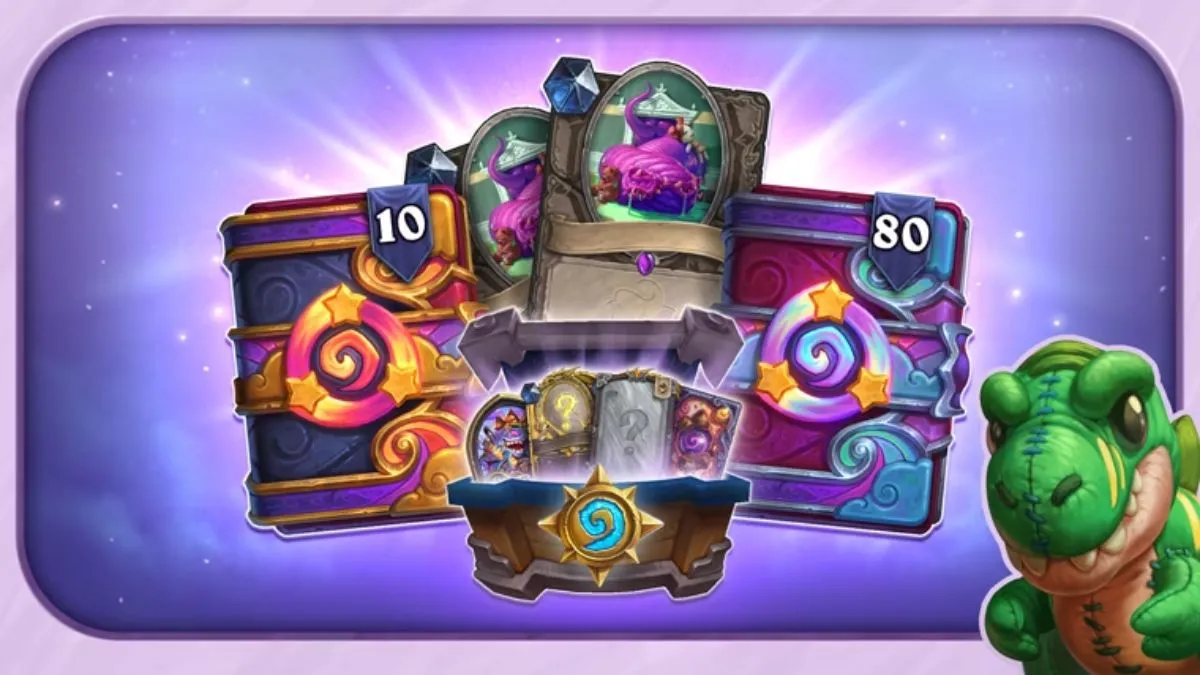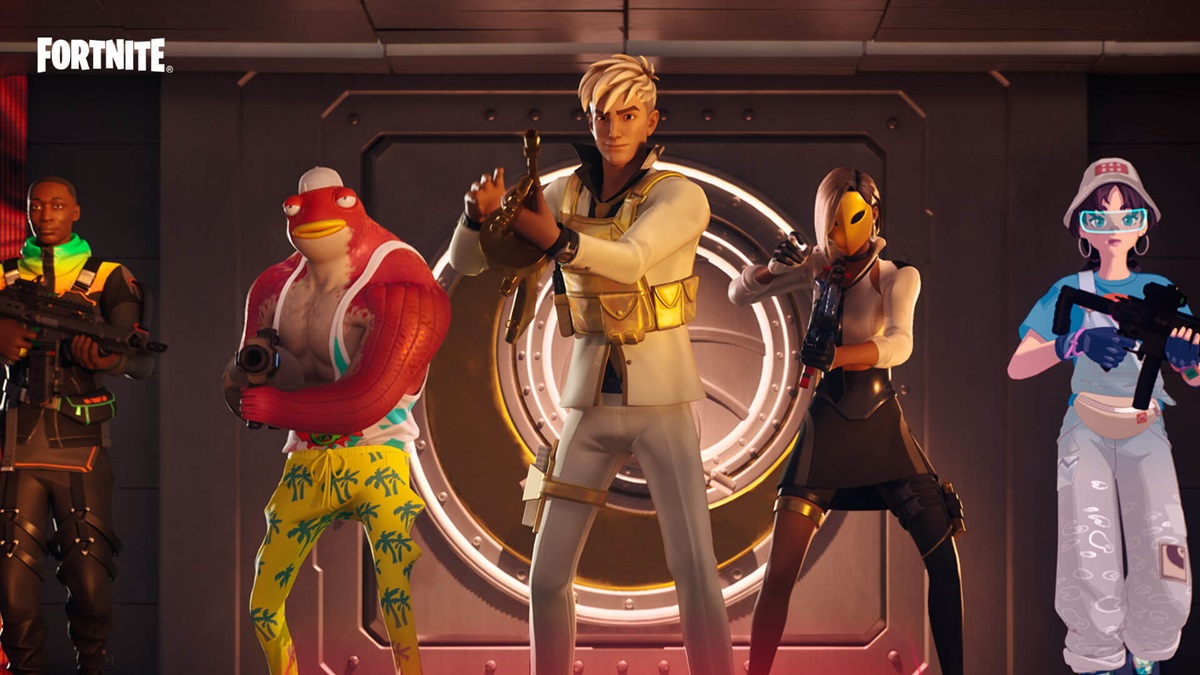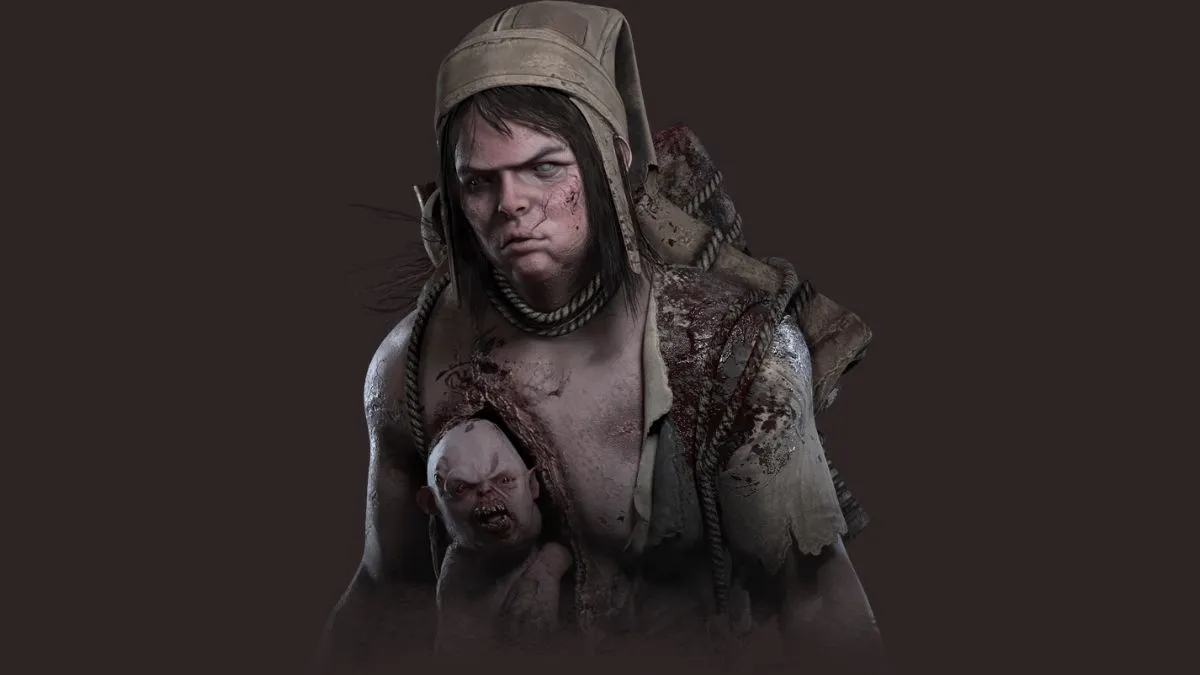I have two stories to tell for this month’s musings theme. One is mine, and one belongs to two of my friends. One concerns the time I killed an large number of human beings in a dramatically satisfying way in Far Cry 2. The other is about the time a God’s monkey servant did something funny in Black & White.
The two stories could not be more different in tone and content, but they both taught me something I consider extremely important: there is a weird majesty, available only in the medium of videogames, in seeing a system of rules and mechanics play itself out in a way that is simultaneously unpredictable and wholly reasonable. I couldn’t have predicted that either of the two stories I’m about to tell could have turned out the way they did, but in hindsight, they make perfect sense. They aren’t weird bugs or funny little exploits, but the natural result of the respective systems behind Far Cry 2 and Black & White playing themselves out to logical and surprising conclusions.
I love linear storytelling games when it’s accomplished with even a hint of competency (Half-Life, Shadow of the Colossus, Metal Gear Solid, et al), but the stories I’m about to tell showed me that there’s an entirely new, entirely game-specific set of emotions to be gleaned from games that allow, even when compared to something like Dwarf Fortress, comparatively low amounts of emergent gameplay.
Anyway, hit the jump to find out what the hell the monkey and the assassination have to do with anything. Some Far Cry 2 spoilers ensue.
My friends Justin and Ulisses experienced the Monkey Incident while either in junior high, or the early years of high school.
While playing Black & White together, the two temporarily got bored and decided to abuse the living shit out of their pet creature, which happened to be a chimpanzee. They eventually and half-intentionally managed to turn their creature into an avatar of pure, undiluted evil whose sole purpose was to spread their influence throughout the land via acts of incredible malice and hatred. When left alone, the creature started knocking down trees, destroying villages, and hurting the townsfolk, to my friends’ sadistic delight.
Eventually, the two got tired of the monkey’s endless destruction and told him to move to another part of the island so he could begin converting the inhabitants of a distant village. After a few slaps, the monkey finally stopped trashing the world and started trotting toward his new destination.
Suddenly, he stopped.

He turned 90 degrees to his right, coincidentally looking straight into the camera.
He began to run. At full speed, faster than either Justin or Uli had ever seen him go. Where was he going? They hadn’t told him to go anywhere. He was disobeying their orders — not necessarily an unusual circumstance in Black & White — but why so suddenly, and with such seeming conviction? The way they tell it, Justin and Uli swear they saw a look of determination on the chimp’s face as he bounded over hills and valleys, through forests and lakes. Justin and Uli struggled to keep up, clicking and dragging the landscape as fast as they could to get ahead of him, and maybe see what objective he was trying to reach before he arrived.
He traversed the entire island, until he finally reached his destination mere seconds after Justin and Uli did.
On the very edge of a cliff overlooking an expansive ocean, sat a pig. A small, pink pig, completely alone and isolated in this corner of the map; God knows how he’d gotten all the way out here.
The monkey kicked the pig into the ocean.
The poor pink ball of fat sailed off the cliff into the air, where it slowly careened down into the ocean with a dull splash.
The monkey turned back toward where he came and sprinted back to the village Justin and Uli had told him to destroy. His work on this part of the island was done.
Though Justin and Uli hadn’t intended for the monkey to do that, his actions made a weird kind of sense considering the behaviors they had reinforced in him: by alternately rewarding and punishing him for the wrong things, he became a walking bottle of evil whose needs could only be satisfied by hurting and killing everything in its path. When my friends tried to get the monkey to do something in their interest in the form of conquering another village, he had been taught that such a diversion was not as relevant as the methodical, mass slaughter of every innocent thing in his path.

Justin and Uli had, unbeknownst to them, trained a creature who prioritized kicking a pig off a cliff over converting a tribe of heathens into Justin-and-Uli worshippers. The moment was absolutely hilarious at the time, yet still made a kind of weird sense.
On the complete opposite side of the spectrum, my assassination of Prosper Kouassi in Far Cry 2 filled me with an equal sense of proceduralist wonder, although to completely different emotional ends.
Around Far Cry 2‘s halfway point, the leader of one of the two leading factions will give you a mission to assassinate the leader of the other. After this, he’ll betray you and send an undefeatable hit squad to kill you, your Buddies, and the innocent civilians belonging to the church that supplied you with malaria medicine. After recovering from your wounds, your first mission is to terminate the remaining faction leader who ordered your death. In my case, I was asked to kill Prosper Kouassi, though considering how brutally he murdered all my friends at Mike’s Bar I would have done it anyway.
When I found Kouassi, he was standing on top of a truck, shouting praises for his faction over a megaphone to a crowd of about a dozen soldiers assembled before him. Their own vehicles were sprinkled around the road, as well, surrounded by thick fields of dry brush that swayed in the cold, midnight wind.
I approached from the south, using the tall grass and darkness to cover my approach. Kouassi, the stupid bastard he was, was elevated so high above the rest of the soldiers that I probably could have popped him once in the head from a distance with my pistol and escaped without even having to deal with the other soldiers.
But I was angry, and well-armed.

I threw all three of my grenades into different areas of the crowd in front of Kouassi, hoping to thin their numbers. Two of the grenades took out a fair number of soldiers, and one detonated two of their trucks that had been parked next to one another. The subsequent explosions set the grass on fire all across the soldiers’ left flank, preventing them moving any further in that direction. Almost without thinking, I switched to molotovs and hurled them in the remaining three directions until I’d completely surrounded the soldiers and Kouassi in four walls of flame. Still crouched on the hill, I heard a few trucks explode from the heat, killing the soldiers next to them.
I decided that now, with the fires raging and the soldiers distracted, was the perfect time to run straight into the mayhem. My assault rifle out, I was ready to exterminate the few remaining soldiers — only after entering the arena of flame (taking a bit of damage as I did so), I was flabbergasted to find every single soldier dead on the ground, either burned or exploded.
But Kouassi wasn’t dead. He couldn’t have been; my objectives hadn’t updated. I moved around the truck he had been preaching from mere moments ago, and then I saw it.
Flames surrounding us on literally all sides, the night suddenly and violently illuminated as the savannah went up in smoke around us, I saw Kouassi — wounded, hunched over, struggling with each step to walk away from the truck, hoping to find a way to safety through some possible gap in the fire.
He and I were completely alone, surrounded by a sea of flame and the corpses of his entire entourage — men I’d killed, but had never made eye contact with.
I stood, and took out my machete. He must have heard me take a step forward, because he turned. One hand holding some sort of wound on his stomach, a pistol grasped limply in his other, he turned to face the man he thought he’d left for dead the day before. He raised his pistol, and began to shoot.
I was in no hurry. I walked forward at my regular pace, letting the bullets fly into my arms and chest. I hadn’t lost a smidgen of health after entering the ring of fire; he’d have to fire at me for a minute straight to do any permanent damage. I continued to walk slowly forward, relishing the image of him hurriedly trying to get off as many rounds as possible, then reload, then fire off a few more.
I got up as close as I possibly could. Face to face with the guy who had killed Quarbani Singh, and Marty Alencar — friends of mine who had saved me when I needed help.
I sliced his chest open with my machete as the flames crackled around us, almost drowning out his scream. Rolling on the ground, wounded, he continued to cry for help, his pleas falling on the ears of the dead men who would have otherwise answered them.
I ran my machete through his chest, and suddenly became the only man standing in a sea of fire and blood and sand and shrapnel. My anger and bloodlust reflected perfectly in the horrifying environment that surrounded me. I grabbed one of the few trucks that hadn’t yet exploded from the heat, and drove back into town, pausing only once to look over my shoulder and watch the flames shrink behind me. My vengeance complete, I had other matters to attend to. I needed to restock my ammo and get some sleep. Tomorrow, there would be other men to kill.

Before this moment, by far the most exhilarating I’ve ever experienced in my umpteenth playthroughs of Far Cry 2, I’d never seen a nonlinear game match the visual and emotional spectacle afforded by linear, narrative-driven titles. This was like every great scripted moment from a Valve game, only not scripted, and thus infinitely more awe-inspiring. I looked around that sea of bodies and flame and thought: I did this. This is my wrath, manifested. I could literally not have imagined a more perfect environment in which to enact my vengeance upon Prosper Kouassi than what I quasi-intentionally created via simple exploitation of Far Cry 2‘s fire and explosion mechanics.
I found it amazing that my plan worked out so well; as is so often the case in unpredictable sandbox games, it was entirely possible that one of my grenades could have hit a weird bump in the terrain and rolled completely away from the soldiers, killing no one and alerting them to my presence. The molotovs could have hit just a hair short of their mark, wasting themselves on the dirt road instead of setting the savannah afire. Prosper Kouassi could have been killed by one of the explosions, giving me no reason to enter the ring of death and enact my brutally satisfying coup de grace.
But, somehow, the stars aligned. The systems combined just as they should have, my agency brought them together in a new and interesting way, and what resulted was an immensely atmospheric, satisfying moment that I will remember for quite some time to come. I’m sure much of that moment was subtly choreographed by the designers at UbiSoft Montreal (the faction leader will always be surrounded by explodable cars and flammable foliage), but still: it felt like my decision to do the things I did, and the resulting chaos was a hundred times more satisfying than 90% of the scripted events I’ve ever seen.
If I ever needed to support the idea that nonlinear, emergent gameplay can be incredible and evocative and should be explored further, two images would immediately jump into my head. A faction leader, surrounded by an ocean of fire and the exploded remains of his entourage. A small, innocent pig, being kicked into the ocean by a fast-moving chimpanzee.
Goddammit, videogames are cool.




